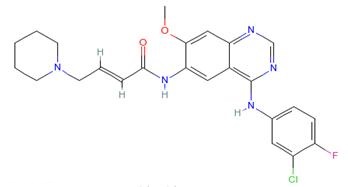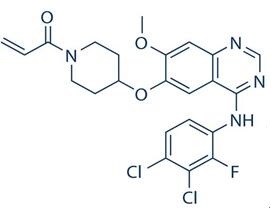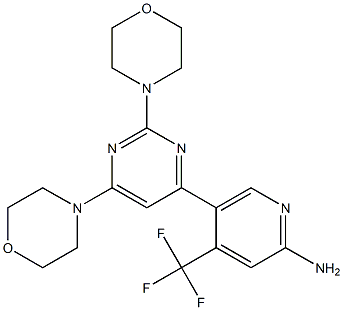BKM120: Biological Activity
Dec 10,2019
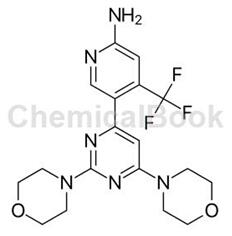
Figure 1. Structural formula of BKM120
BKM120 (PI3K inhibitor) is a small molecule orally available pan-I phosphoinositide 3-kinase inhibitor. Inositol mesylate 3-kinase inhibitors (PI3K inhibitors) are a class of medical drugs that inhibit one or more of the enzymes of functional phosphoinositide 3-kinase, which are part of the PI3K/AKT/mTOR pathway. Many cells have important signaling pathways for growth control, metabolism and translation initiation. Clinical activity has been shown in patients with solid tumors and hematological malignancies. The global clinical phase 2 trial of paclitaxel in combination with paclitaxel for head and neck squamous cell carcinoma has been completed, and drug safety is manageable. Which has obtained FDA's fast track qualification.
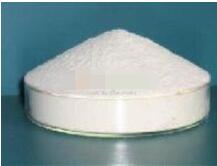
Figure 2. Commercially pictures of BKM120
BKM120 has many different types and subtypes of PI3K. Type 1 PI3K has a catalytic subunit which called p110. There are four types (isotypes)-p110α, p110β, p110γ, and p110δ. The inhibitors under study inhibit one or more isoforms of class I PI3K. Phosphatidylinositol 3-kinases (PI3Ks) are a family of enzymes that are involved in cell functional properties, such as cell growth, proliferation, differentiation, movement, survival, and intracellular transport, which in turn are involved in cancer. For example, BKM 120 can significantly inhibit the proliferation of the triple-negative breast cancer cellines. Research shows that BKM 120 significantly inhibit the cell growth, invitrocloning and microspheres formed of triple-negative breast cancer cells. BKM 120 can inhibit tumor growth in nude mice without significant adverse reactions.
PI3K is a series of related intracellular signal transduction enzymes that can phosphorylate the 3-position hydroxyl group of the inositol ring of phosphatidylinositol (PtdIns). The pathways of the oncogene PIK3CA and the tumor suppressor PTEN involve cancer tumors' insensitivity to insulin and IGF1 and calorie restriction. In December 2015, it reported the results of a phase III BELLE-2 clinical trial against advanced HR+/HER2 endocrine-resistant breast cancer.
Encouraging results have been reported in some subgroups. For example, some PI3K mutations. A Phase Ib clinical trial in combination with buparlisib and letrozole for estrogen receptor positive/human epidermal growth factor receptor 2 negative metastatic cancer. The results show that the drug combination is safe in two different treatment regimens with a clinical benefit rate of 31%. Common toxicity includes hyperglycemia, nausea, fatigue, transaminase, and mood disorders, although the toxicity is reversible and well tolerated.
In terms of research applications, BKM120 (PI3K inhibitor) can be used in the PI3K/Akt/mTOR signaling pathway and clinically relevant tumor inhibitor research. The close relationship between mammalian rapamycin target (mTOR) and protein kinase B (Akt/PKB) and tumorigenesis has been widely recognized. mTOR is a silk /threonine kinase that can regulate cell growth by affecting mRNA transcription, metabolism, autophagy, etc. It is both an effector molecule of PI3K and a feedback regulator of PI3K. mTORC1 and mTORC2 are two different complexes of mTOR. MTORC1 sensitive to rapamycin is affected by four factors: nutrition, growth factor, energy, and stress.
Growth factor regulates mTORC1 through the PI3K/Akt signaling pathway is the most characteristic regulatory pathway. MTORC2 is best known as an upstream kinase that acts as a phosphorylation site for Akt473. Similarly, Akt/PKB plays an important role in the process of cell proliferation and differentiation, migration and growth. With the activation of Thr308 and Ser473 sites, Akt/PKB was fully activated. Therefore, the signal pathway of mTORC2-AktmTORC1 may exist in tumor formation and growth.
In clinical tumor treatment, PI3K/Akt/mTOR is an important signal pathway for targeted therapy. However, by inhibiting mTORC1 activity alone, not all tumors can be expected to be controlled. Although rapamycin can inhibit mTORC1, it can also feedbackally increase PI3K signal activity, which affects the treatment prognosis. Recently discovered second-generation inhibitors can simultaneously inhibit mTORC1/2 and PI3K activity, and this inhibitor is considered to be very promising in tumor treatment.
References
[1] Min Z, Yang Z, Yunhui H, Jin Z. Effects of NVP-BKM120 on the triple-negative breast cancer cell[J]. National Medical Journal of China. 2015, 95(40):3308-3312.
[2]Geuna E, Milani A, Martinello R, Aversa C, Valabrega G, Scaltriti M, Montemurro F(March 2015)."Buparlisib,an oral pan-PI3K inhibitor for the treatment of breast cancer".Expert Opinion on Investigational Drugs.24(3):421–31
[3] PI3K Inhibitor Penetrates Endocrine-Resistant Breast Cancer.Dec 2015.
[4] Buparlisib Benefits Women With PIK3CA Mutations in Circulating Tumor DNA.Dec 2015.
[5] Giese N(2009)."Cell pathway on overdrive prevents cancer response to dietary restriction".PhysOrg.com.Retrieved 2009-04-22.
[6] https://pubchem.ncbi.nlm.nih.gov/compound/16654980
[7] https://www.chemspider.com/Chemical-Structure.17588300.html?rid=9a7b04aa-39d6-43a5-8470-9c0701b501ca
- Related articles
- Related Qustion
Dacomitinib (PF299804), which name is (E)-N-[4-(3-chloro-4-fluoroanilino)-7- methoxyquinazolin-6-yl]-4-piperidin-1-ylbut-2-enamide, is a potent, orally available, highly selective, irreversible small-molecule tyrosine kinase inhibitor (TKI)....
Dec 10,2019InhibitorsPoziotinib (HM781-36B) is a novel oral cancer cell inhibitor developed by Seoul Medical University in 2008. It is used for the treatment of breast and gastric cancer, and has targeted Small molecule inhibitor of tyrosine kinase.....
Dec 10,2019Inhibitors



